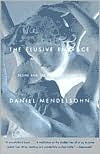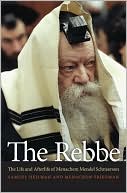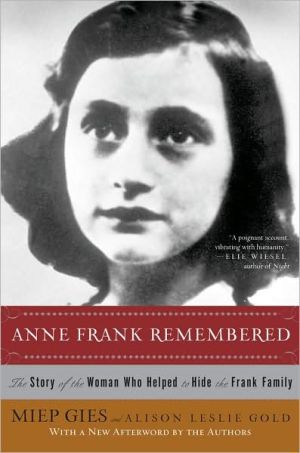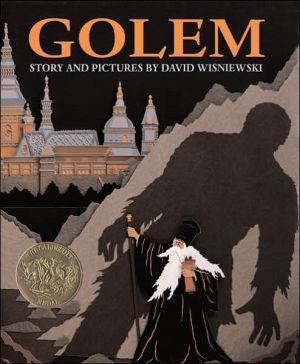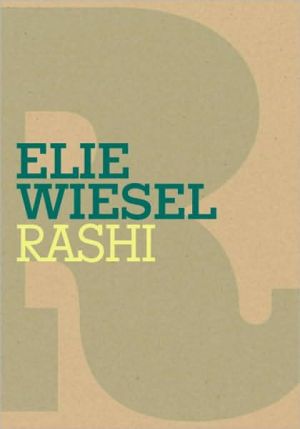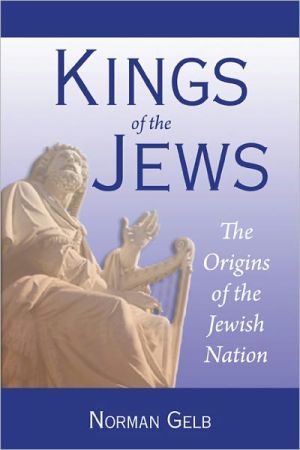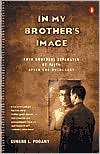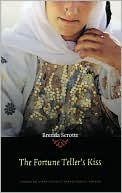The Elusive Embrace: Desire and the Riddle of Identity
Hailed for its searing emotional insights, and for the astonishing originality with which it weaves together personal history, cultural essay, and readings of classical texts by Sophocles, Ovid, Euripides, and Sappho, The Elusive Embrace is a profound exploration of the mysteries of identity. It is also a meditation in which the author uses his own divided life to investigate the "rich conflictedness of things," the double lives all of us lead.\ Daniel Mendelsohn recalls the...
Search in google:
Hailed for its searing emotional insights, and for the astonishing originality with which it weaves together personal history, cultural essay, and readings of classical texts by Sophocles, Ovid, Euripides, and Sappho, The Elusive Embrace is a profound exploration of the mysteries of identity. It is also a meditation in which the author uses his own divided life to investigate the "rich conflictedness of things," the double lives all of us lead.Daniel Mendelsohn recalls the deceptively quiet suburb where he grew up, torn between his mathematician father's pursuit of scientific truth and the exquisite lies spun by his Orthodox Jewish grandfather; the streets of manhattan's newest "gay ghetto," where "desire for love" competes with "love of desire;" and the quiet moonlit house where a close friend's small son teaches him the meaning of fatherhood. And, finally, in a neglected Jewish cemetery, the author uncovers a family secret that reveals the universal need for storytelling, for inventing myths of the self. The book that Hilton Als calls "equal to Whitman's 'Song of Myself,'" The Elusive Embrace marks a dazzling literary debut. Talk10 "Queer ideology is a kind of Narcissus's tale, in which an important sameness keeps getting overlooked because of an insistence that there is only difference," writes Mendelsohn, a classics lecturer at Princeton University who is a gay Manhattanite and a New Jersey dad. In this memoir, he explains how he can be both.
From Chapter One\ For a long time I have lived in two places.\ One of these places is a quiet street lined with houses whose windows peer out from between wooden shutters at trees and the occasional car, a street in many ways like the nondescript one where I grew up, seething and afraid. When I am in that place, I live in one of those narrow squinting houses with a woman and a small child. I will come to that later.\ The other place where I live is in New York City, slightly to the north of gay culture.\ Half a block west of my front door lies Eighth Avenue, a one-way, four-lane, north-south artery that carries traffic uptown—that is, north. Eighth Avenue begins far downtown as the much smaller Hudson Street, still paved in places with cobblestones and endlessly subject to obscure and ongoing repairs; down there, it takes you past tiny cross-streets whose numberless names betray their great age, since once you get above the Village, above Fourteenth Street, the later, modern, rigid grid on which Manhattan is laid out supersedes the haphazard and twisted and ancient streets to the south. The grid is, for the most part, easy: its longitudinal lines are all called avenues, their numbers increasing as you go from east to west (with a few famous exceptions, like Park and Madison), and its latitudinal lines are streets, whose numbers escalate as you go from south to north. Attempts are occasionally made to impose names on these numbers—we are supposed to call Sixth Avenue "the Avenue of the Americas," for instance, and someone has rechristened a snippet of West Sixty-fifth Street near Lincoln Center "Leonard Bernstein Way"—but New Yorkers, always pressed for time, enjoy the brisk and unromantic efficiency of the numbers and ignore the names. In many ways we are a city of people who prefer numbers to names.\ As Hudson Street arcs its way up through the West Village, which until recently was the center of New York gay life, it shakes off its curves and widens, becoming Eighth Avenue just below Fourteenth Street, which is the east-west thoroughfare that marks the southern boundary of the neighborhood called Chelsea, the current center of New York gay life. Fourteenth Street divides the Village from Chelsea. Most of the streets in Greenwich Village have names; all of the streets in Chelsea are numbered.\ If you walk the half-block from my door to Eighth Avenue and make a right turn into it here, in the mid-Twenties, following the traffic north, it'll take you first past some nondescript lofts and tenements and, at Twenty-seventh Street, the Fashion Institute of Technology, which is known generally by its acronym, F.I.T., or, more locally, as "Fags In Training"; then it heads past the big train station at Thirty-fourth Street and the bus station at Forty-second. The avenue continues up through the glittering clutter of Times Square and, after dissolving briefly into the incoherent rapids of Columbus Circle, reemerges rather grandly as Central Park West. Lined by stout matronly prewar buildings on one side and the park on the other, Central Park West neatly divides Culture from Nature for the perusal of those well heeled enough to appreciate the view. It continues with bourgeois rectitude straight up along the park into the West Seventies and Eighties and Nineties—addresses that, at least until the rise of Chelsea as the city's premier gay neighborhood, were favored by a lot of gay men, but are now more likely to be associated, at least by the emigres here in my neighborhood, with yuppies, strollers, and, vaguely, heterosexuality.\ But of course I rarely turn right at the end of my block. Instead I almost always head south, against the flow of traffic. When I do so it's only a couple of blocks from my street to Twenty-third Street, which is Chelsea's northern border. The neighborhood itself extends as far east as Broadway and as far west as Tenth Avenue; but its living heart is Eighth Avenue. Between Fourteenth Street on the south and Twenty-third Street on the north, Eighth Avenue is, for all intents and purposes, the Main Street of the gayest enclave of the gayest city in the world.\ When I was in high school, in a newish suburb that had the word "Old" in its name, as if to assuage the insecurities of its first-generation American homeowners, a place where the houses, identical in structure, were distinguishable only by the color of their nonfunctional shutters, I dreamed of a place like this. I am sure that many other gay youths had (and still have) the same dream. Like me, they may have secretly read certain books over the course of successive weekends while standing nervously in the stacks of the local public library or in B. Dalton, so great was the terror of bringing those particular books home; like me, they may have kissed and fondled the soft demanding bodies of girls with the same sense of willed detachment they brought to laboratory dissections of frogs; like me, they may have needed to summon up the pictures of other classmates as they did so, classmates who were also boys, whose striped swimsuits and wide, awkward shoulders gave some of their friends a sense of panicked tenderness that, because unutterable, soon hardened into irony. I secretly imagined a place where all the people were other boys, and where all the stores and books and songs and movies and restaurants were by boys, about other boys. It would be a place where somehow the outside reality of the world that met your eyes and ears could finally be made to match the inner, hidden reality of what you knew yourself to be. A place where willed detachment and a carapace of irony would no longer be necessary.\ This is the place I can go to if, when I reach the end of my street, I turn left instead of right. Curiously, now that I'm here it's not clear to me that this is the place I want to be. I divide my time now between my two geographies: the familiar streets of Chelsea, with its men and boys and flesh, and the street in the suburb about sixty miles away, lined with pin oaks and taciturn old houses. In front of these houses you will see no young men. You might see a retired widower mowing the lawn—"cutting the grass," he might say—with a rusting red mower, or an old woman sitting on the porch, fanning herself with a tabloid, scanning the street and other people's windows for some event, something to happen. Built long before the thinly shingled houses in the place where I grew up were hastily assembled, these houses are stolid: you sense about them that they know they will outlive, once again, the present generation of owners. These houses have real shutters, shutters that work.\ Sometimes when I take a break from writing I walk down the east side of Eighth to Fourteenth Street, then cross over to the west side and walk back up. At the corner of Twenty-second Street is the Big Cup, a Day-Glo-painted coffeehouse that has proved even more popular as a late-night alternative to gay bars than it is as an afternoon gathering spot for other self-employeds. The latter tend, as far as I can see, to fall into two groups: writers, whose elaborate charade of using their laptops productively sags more and more with every hopeful glance up at the opening door, and a small but fairly regular collection of hustlers, who monopolize the telephone at the back of the room while checking off entries in what you assume must be small black books. In Twenty-second Street itself are Barracuda, a low-ceilinged gay bar that has been frequented exclusively by horny young middle-class gay men since it opened in the fall of 1995 with a party celebrating the publication of a queer-radical treatise by the lesbian activist Urvashi Vaid; and Barracuda's next-door neighbor, a bookstore called the Unicorn, whose inconsequential stock lines a small front room through which you pass en route to the back room, a barely lit space where men can have sex with each other after paying a ten-dollar entrance fee.\ But as I say, I usually continue straight down Eighth. Just past the Big Cup is a home furnishings store called Distinctive Furnishings, where you can buy, among other things, screen savers that display mostly-naked, muscle-bound young men in bathing suits. Then there's a clothing store called Tops N Bottoms (a gleeful double entendre: in the language of gay sex those words refer to those who prefer the active and passive roles in intercourse). A nearby card store called Rainbows and Triangles has a full stock of gay-themed birthday and anniversary and condolence cards. "Because I know how you feel" goes the inside of a card whose outside shows a well-dressed young hunk in a black suit holding a white rose. On this side of the avenue you eventually also pass the American Fitness gym, almost invariably referred to by its campier nickname, "American Princess." Many of the gyms frequented by gay men have been similarly redubbed: Better Bodies has become "Bitter Bottoms," and, in wry but not wholly unadmiring tribute to its owner's hypertrophied pectorals, the David Barton gym on the corner of Sixth Avenue and Thirteenth Street is also known as "Dolly Parton's." A bit farther south is the Chelsea Gym, through whose enormous second-floor windows you can watch men cycle and lift things and run. The crucial meeting between the two male leads in the gay film Jeffrey is set here. Perhaps in recognition of its primacy in the chronology of body culture, the Chelsea Gym has no nickname.\ Also on this side of Eighth Avenue are the Viceroy restaurant—a place you hear described as being one of the "nice" eating spots on this avenue which seems, the more you think of it, to be about little besides feeding, developing, and clothing men's bodies—and the Video Blitz video store. The Video Blitz is just across Seventeenth Street from a huge Blockbuster, but local gay men are apt to belong to both, since Blockbuster cannot compete with Video Blitz's ample collection of art films and gay pornography for rental: The Bigger the Better, A Matter of Size, Brothers Should Do It.\ When I get as far south as Fourteenth Street I usually cross Eighth Avenue and head back uptown. At Fifteenth I pass the Candy Bar and Grill, which opened in the fall of 1996 and whose door is monitored alternately by a tallish drag queen and a shorter, chubby club promoter. The decor here recalls that of upscale Catskills hotels of the fifties, the kind of place my Jewish, heterosexual family might have gone for a weekend in, say, 1953, the year my parents, a mathematician and a schoolteacher, were married; but by now the large and intricate "Moderne" lighting fixtures that would have impressed those young Jewish people almost fifty years ago have, like so many artifacts from the world of their youth, somehow become the objects of irony, signaling a particular brand of stylishness, a certain kind of knowingness, to the young, attractive gay men who come here in order to feel glamorous and special. (For some reason many of these men are dark-haired; not Jewish perhaps, but Mediterranean.) North of Candy Bar is FoodBar, perhaps the most popular restaurant in the neighborhood, at least partly because its co-owner, Joe, is as opulently well muscled and darkly handsome as some of its clientele is, and most of its clientele aspires to be. As you walk past FoodBar you invariably see him through the enormous plate-glass window etched with the restaurant's name; he's sitting on a bar stool close to the front door, smoking in a tight T-shirt, dispensing seats and air kisses to huge men in work boots and tank tops. Often as I pass by on my walks he'll raise an amused eyebrow at me and beckon me in with a look that says he won't take seriously my inevitable protests about overwork and looming deadlines; pushing a pack of cigarettes across the bar at me, he'll order me a glass of red wine, and another one for himself, and we'll gossip about boys or books. There are no unattractive waiters at FoodBar.
\ Talk10"Queer ideology is a kind of Narcissus's tale, in which an important sameness keeps getting overlooked because of an insistence that there is only difference," writes Mendelsohn, a classics lecturer at Princeton University who is a gay Manhattanite and a New Jersey dad. In this memoir, he explains how he can be both.\ \ \ \ \ Frank BrowningHad he not come of age in the 1980s, Daniel Mendelsohn, like Gore Vidal who matured 40 years earlier, would surely have looked down his long straight nose at the teeming, sweating masses of New York's gay gym bunnies and decamped for the sublime and rocky shores of the Mediterranean. He is, after all, a scholar of ancient Greek and Latin, a speaker of most of the Romance languages as well as German and Yiddish and an apparently dashing swain who, he tells us, has no trouble picking up comely bundles of muscle wherever they are. But Mendelsohn, a 39-year-old refugee from the suburbs, does like or has liked a pumped physique and has spent his young adulthood residing in the city's hottest gay ghetto he prefers the term "colony", Chelsea. He is a tormented -- deliciously tormented -- prisoner of his times. His debut book, on desire, love and identity, though at times needlessly repetitious, is also one of the smartest meditations on American homosexual life in many years.\ Like most gay memoirists, Mendelsohn leads us through his sexual awakening silently salivating over an unavailable Southern swimmer who transferred to his Long Island Jewish-intellectual high school to his loss of homo-virginity to a Virginia college classmate to his eventual admittance to Chelsea boyland. Along the way he succumbs to ancient Greek, whose elusive linguistic images and structures become both intellectual and psychological guides to his own elusive sense of desire and identity. The key to understanding both the language and the author resides in a peculiar syntactic device of classical Greek: the use of the conjunctive men at the beginning of the first clause of a sentence in tandem with de at the beginning of the second clause.\ This syntax, which Mendelsohn renders as "on the one hand this" but "on the other hand that," epitomizes, he says, the Greek tendency to bipolar thinking. Yet the linguistic polarity of men and de is also key to Mendelsohn's story: the Jewish boy always chasing after fair-haired Southerners, the meditative intellectual in search of relentless play, the playboy dogged by the mysterious tombstone image of a beautiful immigrant ancestor 70 years dead, the hunk lover seduced by the infant child he is helping to raise. "If you spend a long enough time reading Greek literature, that rhythm begins to structure your thinking about other things, too," he writes. "The world men you were born into; the world de you choose to inhabit. Your Jewish men heritage, stern yet fertile, sexless for you because heterosexual, yet for the same reason procreative, proliferating, productive; your passion, de, for classical Greece, rich with fables that must always end the same way, the culture of perfected beauty and marmoreally self-sufficient bodies doomed always to repeat the same pleasures." It is a handsome device for intertwining the complexities of his own diverse passions and demolishing the simple-minded propaganda of the proliferating gay chambers of commerce bent on reducing homosexual desire to a marketing niche. It would be more effective still had he not lingered so long on the professorial platform, hectoring the reader with repetitious and often self-indulgent elaboration.\ Mendelsohn's elusive embrace is nowhere stronger than in his brutal reflections on the difference between his love-lust for perfect young men and his simple love for his friend's child. He had never loved, truly loved, the boys he sought, he admits, because he stayed with them only "as long as they left me alone and whole and untouched." The love of those boys was like the narcissistic love of the dapper, oft-married grandfather who was his idol. "To be a lover -- to be a desirer, a collector -- is to be self-obsessed, for your desire is ultimately about yourself," he writes of both his grandfather and himself. "But to be a parent is, ultimately, to efface yourself -- your self…In our different ways, my grandfather and I are great desirers."\ Unlike the authors of the recent stream of soupy-minded diatribes against the exuberant sexuality of the gay demimonde, Mendelsohn does not repent his testosteronic chase. Yes, he has become a part-time suburbanite parent like his schlumpy schoolteacher father, but he still spends half his week in Manhattan, a few subway stops from the Chelsea corner he calls the Intersection of Desire. Daniel Mendelsohn remains, in this age of Monica moralizers, a "yes, but" seeker after the meaning of his own identity, a trickster of Gotham who understands well that simple nostrums are never adequate to complex passions.\ — Salon\ \ \ \ GoldhillDaniel Mendelsohn's autobiographical reflections on the nature of his social, familial and professional identity as a gay classicist and writer are surprisingly brilliant, subtly revelatory and wonderfully well-written. He interweaves fragments of his own biographical narrative through childhood, university, and life in New York with ironically precise and intelligent appraisals of his developing intellectual concerns with Sappho, Greek tragedy, Narcissus.\ —The Times Literary Supplement\ \ \ \ \ Jonathan LearIf you want to know the inner workings of [Mendelson's] mind, take a look at the streets along which it wanders....Mendelsohn recognizes that sometimes there is no...meaning [beyond the obvious]: ''This is how your life happens: somebody has the right color hair.'' But, for him, the complete recovery of meaning lies at the heart of what it is to be gay....[T]his charming aperçu-filled memoir is...a personal myth about undoing family myths.\ — The New York Times Book Review\ \ \ \ \ Glen BowersockThese chapters could scarcely be said to constitute a conventional autobiography. They are more like the movementsof a lyric suite, in which motifs come and go until the reader feels at the end wholly attuned to their spiritual and emotional conjunctions—conjunctions that begin in dissonance and conclude in exhilarating harmony. The book defies categorization. Although sex is a central theme, this is not simply another gay memoir.\ —The New York Observer\ \ \ \ \ Kirkus ReviewsMendelsohn's first book is a clever attempt to look at gay identity and family mythology through literary narratives of antiquity. A classics scholar who for years has been grappling with issues such as gay culture and the homosexual psyche, Mendelsohn finds a natural connection between the "pagan culture" and "pagan acts." He discovers in the Greek mentality and Greek language a tendency to bipolar thinking, whereby any articulated idea invites its opposite. Such, claims Mendelsohn, is the gay identity, which hovers between the extremes of the straight world into which every gay man is born and the gay world that he eventually chooses to inhabit. In Ovid, the myth of the nymph Echo illustrates how difference can be mistaken for sameness; it is supplemented by the myth of Narcissus, who, on the contrary, mistook his own face (sameness) for a stranger's (difference). This ancient paradigm is reflected in the gay male perception of men and women. While for gays the female world signifies difference, other men signal sameness. Tracing the etymology of the word "identity" to the Latin adverb identidem ("repeatedly"), Mendelsohn defines the gay identity as an infinitely repeated desire for other men. Analyzing Sappho's love poem about the frustration of seeing the erotic object pursued by someone else, the author reflects on similar painful episodes in his own love life. Euripides' fatherhood tragedy Ion provides for Mendelsohn a framework for his own experiences as the godfather of a friend's child. Here two extremes coalesce again, as he is driven both by his inherent fear of commitment to family life and by his enjoyment of this pseudofatherhood and the accompanying routine. Finally,Sophocles'Antigone presents the author with an archetypal myth of beauty and loss, which he sees reflected in his family's myth of a great-aunt's death. Despite Mendelsohn's disturbingly excessive descriptions of his numerous one-night stands, his insights into the mechanisms of gay culture are interesting.\ \
